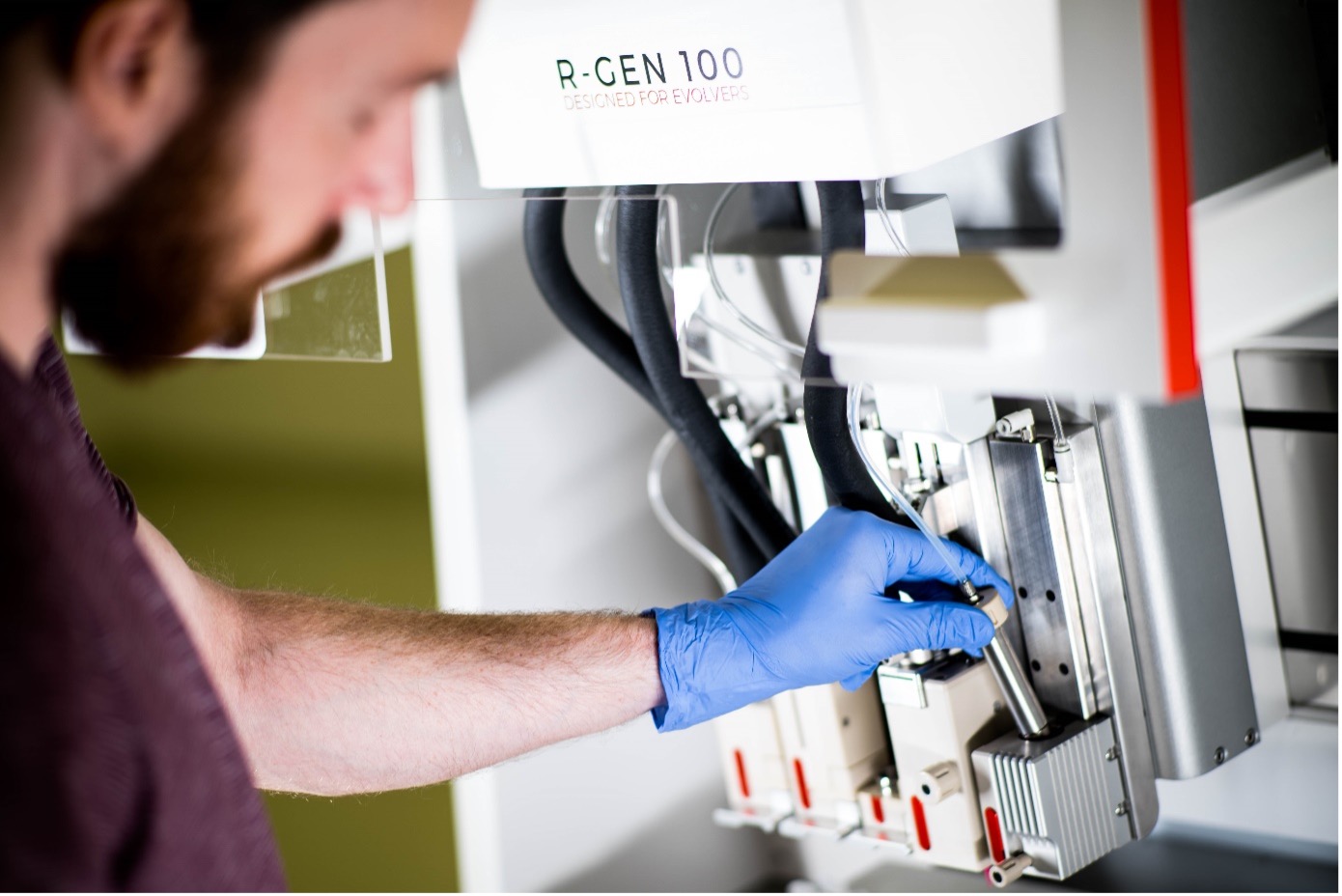REGENHU’s R-GEN 100 bioprinter enables the artificial production of biological tissue for regenerative medicine.

The replacement of a defective organ still faces two major problems: the lack of donors and the phenomenon of rejection, a strong immune reaction in the body against a substance considered foreign. With the help of the Fribourg-based company REGENHU, located in the Vivier technology park, an ambitious European research project could soon change this situation
“The objective of the ORGANTRANS program is to develop a highly innovative alternative to organ donation by generating liver tissue from stem cells taken directly from sick patients, greatly reducing the risk of rejection”, summarizes Denis Crottet, Chief Business Officer at REGENHU. The approach consists of first forming organoids (multicellular microstructures) with these cells, then constructing by 3D printing a biological tissue comprising these organoids, and finally maturing this tissue in a bioreactor. The project, which is funded using €6.3 million from the European Union and coordinated by the CSEM (Centre suisse d’électronique et de microtechnique), involves eight partners and two transplantation centers in Germany, Belgium, the Netherlands, the Czech Republic, the United Kingdom and Switzerland.
Building bridges
“It is our logical responsibility to manage the instruments and software”, says Denis Crottet, whose employer is a pioneer and world leader in the field of tissue and organ bioprinting technologies. “Beyond potentially revolutionary scientific advances, ORGANTRANS represents a wonderful opportunity to build solid bridges and promote technology transfer between consortium members. Part of the program is even entirely dedicated to the protection and upgrading of the intellectual properties created on this occasion, so that the partners can ultimately benefit from them”, the specialist is pleased to add.
This puts the Swiss SME and its partners at the forefront of regenerative medicine. Indeed, the project’s primary goal is to repair the liver, but it could also be transposed to other organic microtissues, such as those of the pancreas, in the future.
